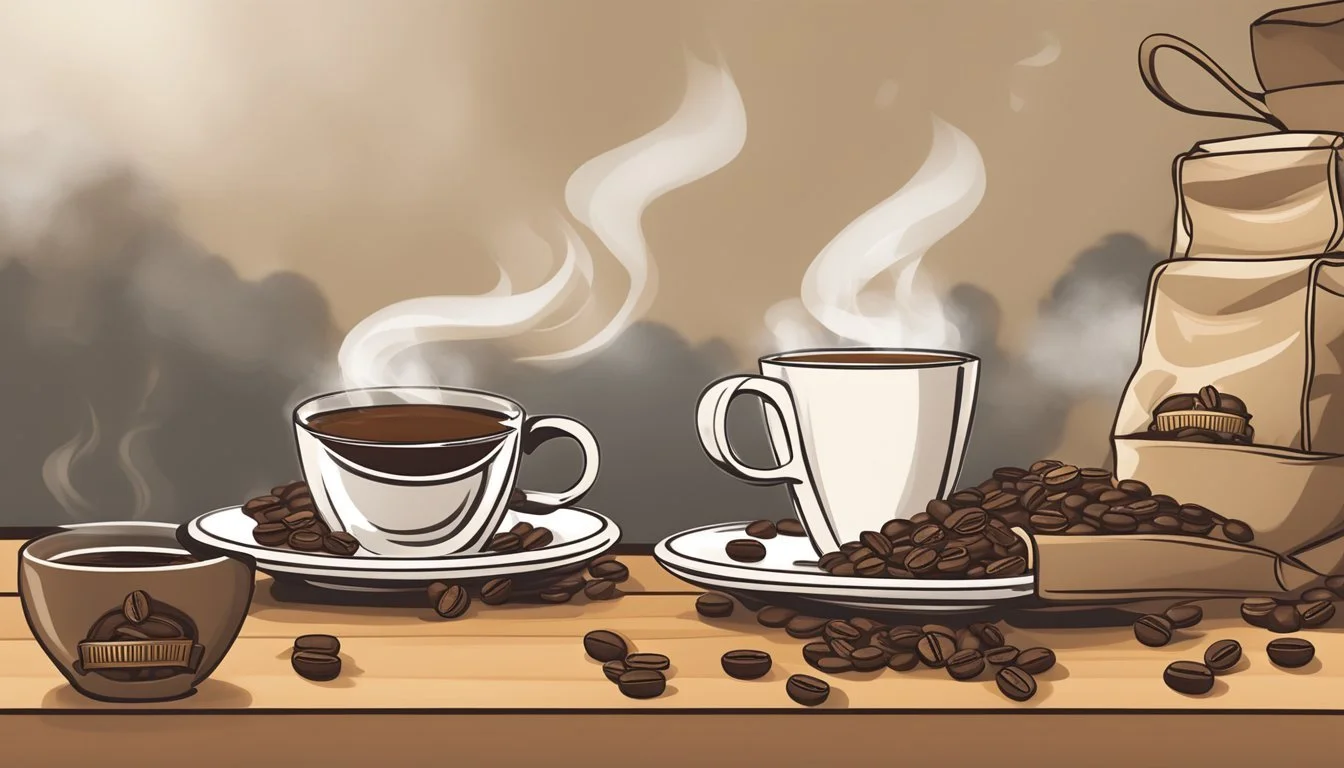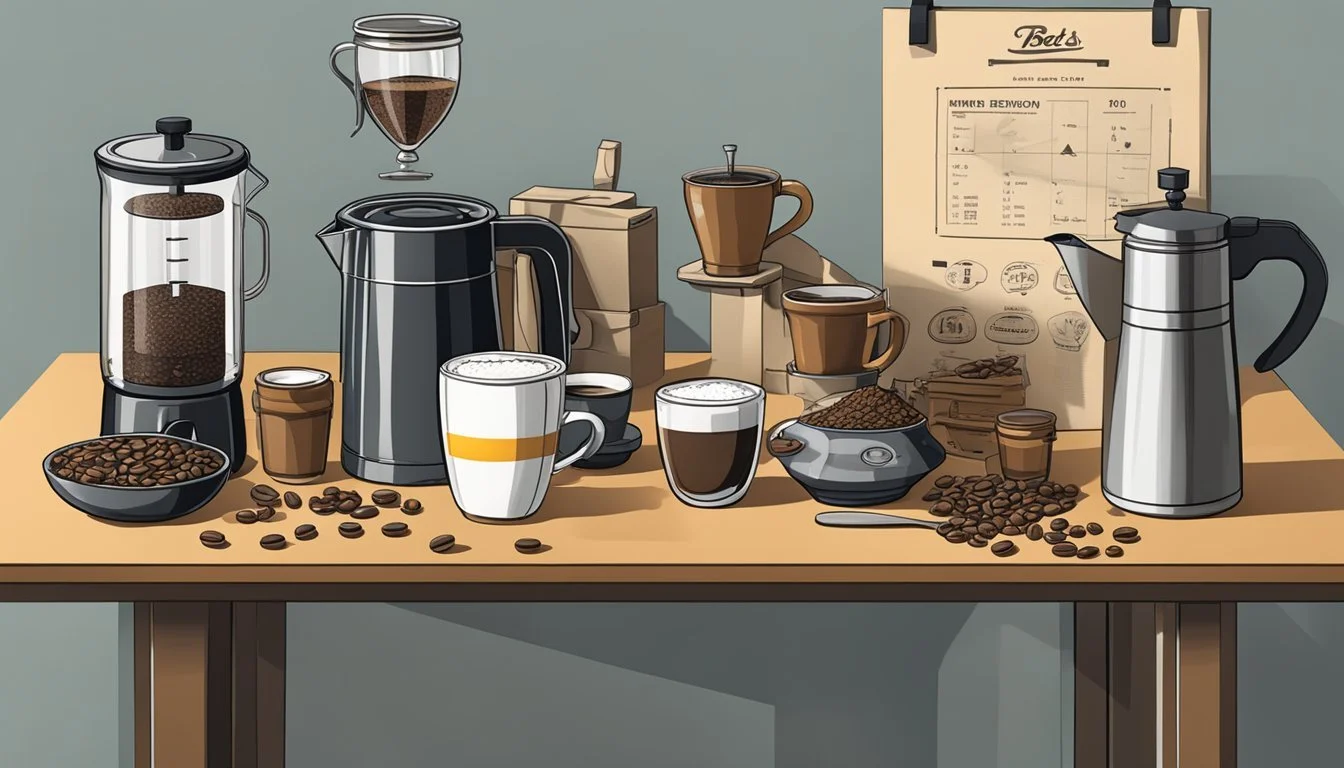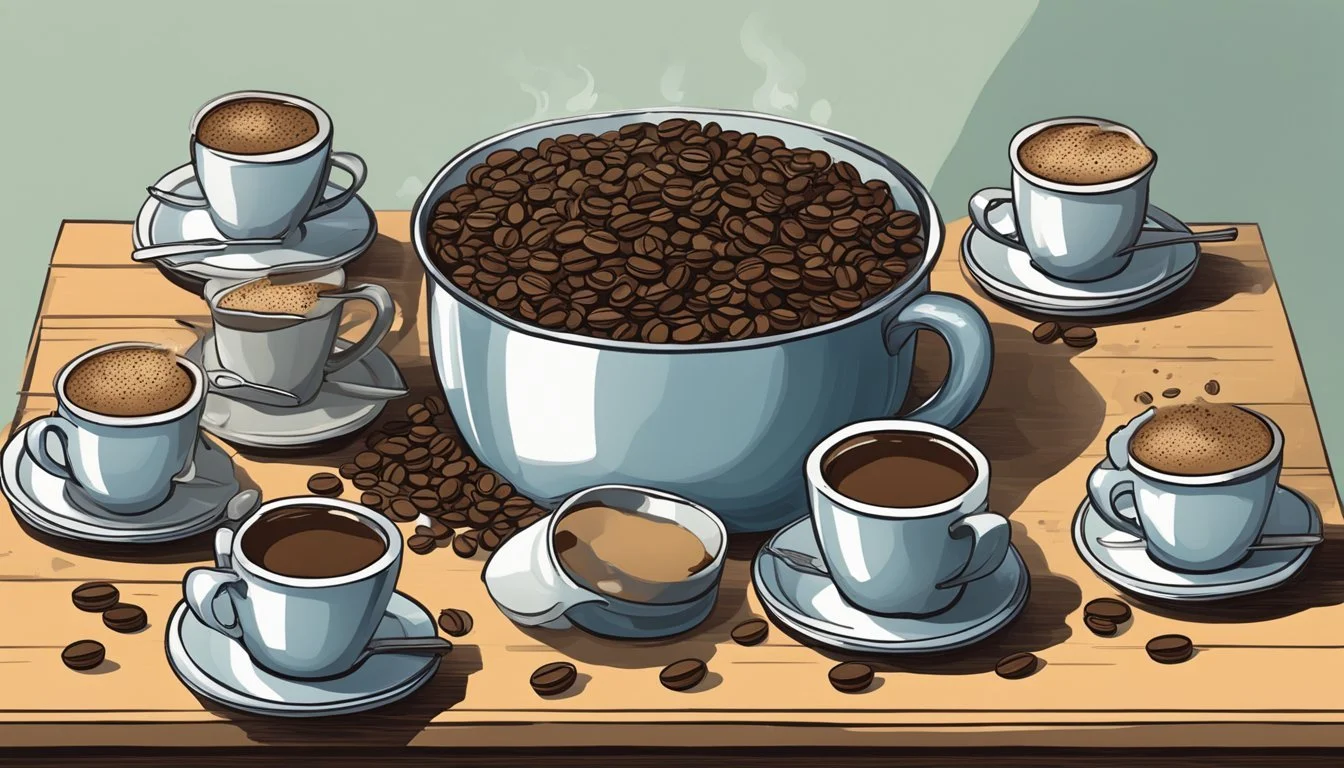How Many Cups of Peet's Coffee Per Day Is Too Much?
Understanding Safe Limits
Coffee enthusiasts often grapple with the balance between savoring their cherished brew and moderating their caffeine intake. Peet's coffee, known for its robust flavor profiles and caffeine content, serves as a popular choice for many. A standard 16-ounce serving of Peet's brewed coffee contains approximately 267 milligrams of caffeine, which equates to about 133.5 milligrams in the more typical 8-ounce cup size.
The Food and Drug Administration (FDA) has provided guidelines suggesting an upper limit of 400 milligrams of caffeine per day for the average adult. This equates to roughly three 8-ounce cups of Peet's coffee, ensuring that coffee lovers can enjoy their favorite beverage without overconsumption. It's crucial to consider individual sensitivity to caffeine as it can vary widely among different people, affecting how one might react to the same amount of coffee.
While Peet's offers a range of coffee options, including both dark and light roasts, it's the dark roasts that may contain more caffeine in some instances. It is important to consider personal thresholds and heed the recommended caffeine intake limits when savoring a cup of Peet’s coffee. By doing so, coffee aficionados can enjoy Peet's distinctive flavors and energizing effects within a healthy daily routine.
Understanding Caffeine in Coffee
In assessing the impact of Peet's coffee on one's daily caffeine intake, it is crucial to note the variations in caffeine content across different coffee types and to understand the physical effects of caffeine.
Caffeine Content Overview
According to the USDA standard nutrition database, an 8 fluid ounce cup of coffee generally contains about 95 mg of caffeine. In contrast, a single shot of espresso tends to have slightly less, usually around 63 mg. However, Peet's Coffee reports that their espresso capsules contain approximately 50-120 mg of caffeine, showcasing a variability depending on the specific product. Decaffeinated coffee options do exist, providing a significantly reduced amount of caffeine, about 2.4 mg in an 8 fl oz decaf coffee, and around 0.3 mg in a shot of decaf espresso.
Differences Between Coffee Types
Regular Brewed Coffee: On average, Peet's brewed coffee contains about 133.5 mg of caffeine per 8-oz serving.
Espresso: Compared to brewed coffee, a shot of espresso contains less volume but is more concentrated, with Peet's espresso having about 70 mg per shot.
Decaffeinated Coffee: While not completely caffeine-free, decaffeinated coffee and espresso provide substantially lower caffeine levels.
Caffeine content is not uniform and can fluctuate based on factors such as the type of coffee bean, the roasting process, and the brewing method.
Effects of Caffeine
Caffeine operates as a stimulant, known for increasing alertness and temporarily warding off drowsiness. Individuals may experience varied effects from caffeine based on their sensitivity to caffeine, which is influenced by genetic factors and habitual consumption levels. Consuming too much caffeine can lead to side effects such as insomnia, nervousness, restlessness, and a fast heartbeat. It is recommended by health professionals that adults limit their caffeine intake to no more than 400 mg per day, equivalent to roughly four 8-ounce servings of brewed coffee, though personal tolerance levels can vary.
Peet’s Coffee: A Profile
Peet’s Coffee, known for its superior quality and deep-roasting method, has established a respected legacy in the coffee industry. This section dives into the brand's origins and its varied selection of flavors and roasts.
History of Peet's
Alfred Peet opened the first Peet's Coffeebar in 1966 in Berkeley, California, introducing the United States to its first boutique roasting experience. The brand has since garnered a devout following, particularly among coffee connoisseurs, for its artisanal approach and commitment to quality. Peet's legacy is closely associated with transforming the American coffee scene through introducing freshly roasted beans to a wider audience.
Peet's Coffee Flavors and Roasts
Peet's Coffee offers a broad spectrum of flavors and roasts, ranging from light, medium to dark roasts. The brand is renowned for its bold flavors and the meticulous care that goes into each batch of roasted coffee beans. Among the available flavors, Peet's Major Dickason's Blend stands out as a favorite, characterized by rich, complex, and full-bodied notes. They ensure that each flavor profile is developed to maintain consistency and quality, utilizing only the finest coffee beans sourced from around the globe.
Brewing Methods and Ratios
Brewing the perfect cup of Peet's Coffee involves precise ratios and varying techniques, each tailored to the coffee enthusiast’s preferred method. The common brewing methods include simple pour overs to more involved French press techniques. The key is in measuring with accuracy and understanding decaffeination for those sensitive to caffeine.
Common Brewing Techniques
Pour Over: Involves pouring hot water over coffee grounds in a filter, with water flowing through the coffee and filter into a carafe or mug. This method highlights the character and subtlety of the coffee.
French Press: Consists of steeping coarsely ground coffee in hot water, then pressing a plunger to separate the grounds from the liquid. Known for a rich and full-bodied cup.
Cold Brew: Requires steeping ground coffee in cold water for an extended period (usually 12-24 hours), resulting in a smooth and less acidic beverage.
K-Cups/Capsules: Designed for convenience, these pre-measured cups or capsules brew a single serving using a Keurig brewer or similar machine.
Measuring Coffee
Ratio: A standard ratio is two tablespoons (10g) of ground coffee to six fluid ounces (180ml) of water. Adjusting this can lead to a stronger or weaker cup depending on personal preference.
Ground Coffee: For precise brewing, use a scale to measure your ground coffee. Consistency is key.
Table of Measurements:
Brew Method Coffee (Tablespoons) Water (Fluid Ounces) Pour Over 2 6 French Press 4 12 Cold Brew 8 24
*Note: This table represents basic guidelines for a single serving. Scale measurements according to the number of servings desired.
Exploring Decaffeination
Decaf Coffee: For those cutting back on caffeine, decaf coffee can be a suitable alternative, retaining most flavor notes without the stimulating effects.
Decaffeination Method: The Swiss Water Process is a chemical-free way to remove caffeine, relying on solubility and osmosis to decaffeinate coffee beans effectively.
When brewing decaf, the same care and ratios should be applied as with regular coffee to ensure the best flavor profile.
Determining Appropriate Consumption
When considering how much Peet's coffee one can safely consume in a day, it's crucial to understand the caffeine content and recognize individual sensitivity to caffeine. This assures a balance between enjoying the beverage and maintaining health.
Safe Consumption Levels
According to the USDA standard nutrition database, a safe consumption level for most adults is up to 400 milligrams of caffeine per day. This is equivalent to about four 8-ounce cups of brewed coffee or approximately five shots of espresso. Peet's coffee, in line with these figures, provides around 267 milligrams of caffeine in a 16-ounce serving of their brewed coffee, and a single shot of their espresso contains about 70 milligrams.
For decaffeinated beverages, Peet's claims that their brewed decaffeinated coffee contains roughly 4-8 milligrams of caffeine per 6 ounces, and a shot of decaf espresso has around 2.4 milligrams.
Personal Sensitivity and Preferences
People's sensitivity to caffeine varies widely. Some individuals might experience jitteriness, insomnia, or increased heart rate with small amounts of caffeine, whereas others may not notice these effects even with higher intake.
For those sensitive to caffeine, even a single cup of coffee may be too much.
Less sensitive individuals can often enjoy several cups without adverse effects.
It's beneficial for coffee drinkers to pay attention to their body's responses to caffeine and adjust their consumption accordingly. Furthermore, preferences such as the desire for strong flavors or the enjoyment of coffee as a warm, clean beverage made with hot water, rather than for its stimulating effects, might influence consumption habits.
Other Beverages for Consideration
In the context of moderating caffeine intake, exploring alternative beverages is crucial for those looking to reduce their dependency on coffee or simply diversify their drink options.
Tea Alternatives
When considering tea as an alternative to coffee, one has several options, each with varying caffeine levels. Black tea, which undergoes a full oxidation process, generally contains about 40-70mg of caffeine per 8-ounce cup, making it a robust option closer to coffee in terms of caffeine strength. Green tea and white tea are less oxidized, offering a gentler lift with roughly 20-45mg and 15-30mg of caffeine per cup, respectively. For those seeking minimal caffeine, herbal teas—which are not true teas but infusions of herbs and other plant matter—usually contain no caffeine.
Decaffeinated alternatives exist as well, where the caffeine has been removed through various methods of extraction. Such decaffeinated coffee and decaf teas typically have low caffeine residues, usually ranging from 2-5mg per 8-ounce serving.
Non-Caffeinated Choices
For individuals aiming to eliminate caffeine entirely, non-caffeinated choices abound. There are numerous herbal infusions, such as chamomile, rooibos, or peppermint, offering a coffee-free experience while still providing a warm, comforting cup. Additionally, beverages like hot water with lemon or non-caffeinated fruit teas serve as flavorful options that completely forgo any form of caffeine.
Considering these alternatives can help maintain a balanced diet and avoid the overconsumption of caffeine that might come from too many cups of Peet's or other brands of coffee.
Conclusion
In assessing the optimal consumption of Peet's coffee, one should consider the caffeine content per serving and the prevailing health guidelines. Peet's 16-ounce brewed coffee contains approximately 267 mg of caffeine, equating to roughly 133.5 mg for an 8-ounce serving. Health studies generally suggest that up to 400 mg of caffeine per day is safe for most healthy adults, which translates to approximately three 8-ounce servings of Peet's brewed coffee.
Related Articles and Resources
For readers seeking to understand the craft of coffee brewing and its impact on caffeine levels, further research into the various methods and the type of beans used by Peet's can be insightful.
Articles discussing the difference in caffeine content between light and dark roasts from Peet's may also provide valuable information on choosing the right coffee based on one's personal caffeine sensitivity or preference.
To explore the health effects of regular caffeine consumption, including potential benefits and risks, one could consult scientific studies and expert commentaries which inform the recommended limits.







